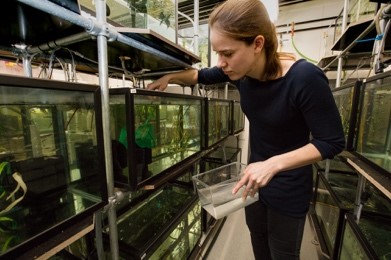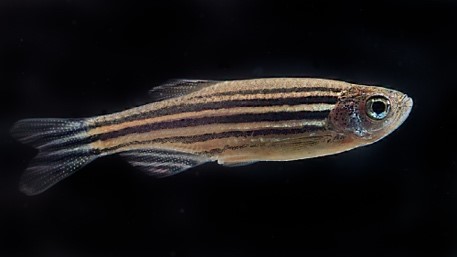Climate change is increasing global temperatures and the frequency of extreme events such as heat waves, which can impose thermal stress on aquatic ectotherms. How organisms will cope with climate change will partly depend on how quickly they are able to adapt their thermal tolerance. However, the ability of thermal tolerance to evolve in vertebrates is largely unknown. To address this question, we artificially selected for thermal tolerance in zebrafish. Starting with a large wild-caught ancestral population (n=1800), we selected fish for six generations according to four duplicated selection treatments: high thermal tolerance, low thermal tolerance, high thermal tolerance after warm acclimation, and random selection (control). We found that whilst thermal tolerance is diverging between lines, the response to selection is asymmetrical with a stronger response in the direction of reduced tolerance. The weak response in the high tolerance line suggests that evolution to increase thermal tolerance is very slow. With the rate at which global temperatures are increasing, these results suggest that fish may not be able to evolve rapidly enough to adapt to the new conditions. These thermally selected lines provide us with a unique opportunity to examine how physiological traits may co-evolve with thermal adaptation, as well as to investigate the mechanisms involved in limiting thermal tolerance in fish.

